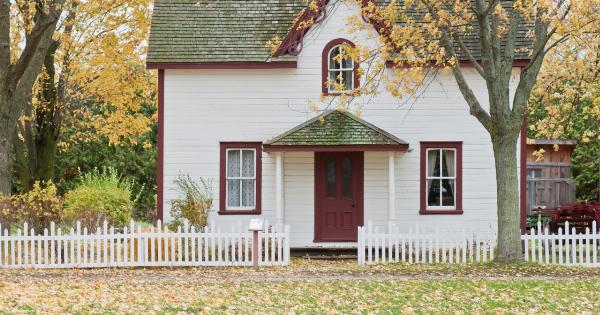Age is a concept that often shapes how we view ourselves and others. Society has long held certain beliefs and expectations about different age groups, perpetuating numerous misconceptions.
These misconceptions can affect how people perceive themselves and can lead to unfair judgments and stereotypes. In this article, we aim to explore the differences between perception and reality when it comes to age, challenging common misconceptions and shedding light on the truth behind them.
The Aging Process: Beyond Wrinkles and Gray Hair
One common perception about aging is that it is solely defined by physical appearance. Society tends to focus on wrinkles, gray hair, and other signs of aging as the primary indicators of getting older.
However, the reality is that aging is a complex and multi-faceted process that goes far beyond external appearances.
As we age, our bodies undergo a variety of physiological changes. Our metabolism slows down, making it more challenging to maintain a healthy weight. Our muscles and bones become weaker, increasing the risk of injuries.
Our immune system weakens, leaving us more susceptible to illnesses. These are just a few examples of the physical changes that occur as we grow older.
However, while these changes are a part of the aging process, it is important to understand that they do not define an individual’s value or capabilities.
The perception that aging automatically leads to physical decline ignores the remarkable resilience and strength that can be found in people of all ages.
Health and Wellness: Breaking Free from Stereotypes
Another prevalent misconception about age relates to health and wellness. Many people perceive that as we age, our health inevitably deteriorates, and chronic conditions become a norm.
While it is true that certain health issues are more common among older adults, it is not a guarantee that everyone will experience them.
The reality is that lifestyle choices can greatly impact one’s health and well-being regardless of age.
By practicing healthy habits such as regular exercise, a balanced diet, and proper stress management, individuals can maintain or even improve their physical and mental health as they age.
Moreover, advancements in healthcare have contributed to increased longevity and better quality of life for many older adults.
Medical breakthroughs, improved treatments, and preventive care programs have proven to be invaluable in managing and preventing various health conditions.
Relationships and Social Connections: Dispelling Myths
Age is often believed to have a significant impact on relationships, particularly when it comes to friendships and romantic partnerships.
There is a common perception that older adults struggle to form new relationships, that they become isolated, and that their social lives diminish as they age.
However, the reality is far from this perception. Studies have shown that social interaction and maintaining strong relationships are vital for our overall well-being, regardless of age.
While the dynamics of relationships may change over time, older adults have the capacity to form new friendships, develop meaningful connections, and maintain active social lives.
Happiness and Fulfillment: Defying Ageist Assumptions
Another aspect where perception often deviates from reality is happiness and fulfillment in later stages of life. Many believe that as people age, they become more unhappy, discontent, and less satisfied with life.
This assumption not only feeds into ageist stereotypes but also fails to acknowledge the diverse experiences and personal growth that can occur with age.
Research has consistently shown that happiness does not have an age limit. Several studies indicate that older adults tend to report higher levels of life satisfaction and emotional well-being compared to younger age groups.
With age comes wisdom, resilience, and an increased ability to appreciate life’s simple pleasures. Older adults often have a wealth of experiences and a more refined perspective, enabling them to find fulfillment and contentment in various aspects of life.
Productivity and Contributions: Age as an Asset
Perception often suggests that older adults are less productive and cannot contribute as much to society as younger individuals. This misconception overlooks the valuable skills, wisdom, and expertise that come with age.
The reality is that older adults possess a wealth of knowledge and experience accumulated throughout their lives.
Their unique perspectives, problem-solving abilities, and leadership skills can bring immense value to various areas, be it in the workforce, volunteering, or mentoring younger generations.
Moreover, age should not be seen as a barrier to personal growth and pursuing new endeavors. Many older adults choose to embark on new careers, learn new skills, or engage in creative pursuits.
The desire for personal development and making a difference does not diminish with age; it simply takes on new forms.
Abilities and Skills: Debunking Age-Related Limitations
It is often believed that certain abilities and skills decline with age. Memory, cognitive function, and physical agility are frequently cited as areas where older adults may struggle.
While it is true that certain functions may decline with age, it is essential to distinguish between natural changes and impairments resulting from age-related conditions.
The reality is that aging does involve some cognitive and physical changes. However, the extent and impact of these changes vary greatly among individuals.
Research has consistently shown that engaging in mentally stimulating activities, maintaining an active lifestyle, and continuously learning can help preserve and even enhance cognitive function.
Additionally, older adults often display exceptional problem-solving skills, emotional intelligence, and decision-making abilities that have been refined over years of experience.
These qualities should not be underestimated or overshadowed by misconceptions about age-related limitations.
Experience and Wisdom: Age as an Advantage
Experience and wisdom are two qualities often associated with older adults. However, they are also frequently undervalued or overlooked in a society that often prioritizes youth and novelty.
The reality is that experience and wisdom cannot simply be replaced or replicated. Through a lifetime of experiences, older adults have accumulated valuable insights, life lessons, and a deep understanding of human nature.
This wealth of wisdom can be invaluable not only in making personal decisions but also in contributing to the greater good of society.
Seeking guidance and learning from the experiences of older adults can lead to personal growth, increased empathy and understanding, and more informed decision-making.
Personal Growth: Embracing the Journey
Finally, it is crucial to recognize that personal growth does not have an expiration date. Many people perceive aging as a period of stagnation or decline, marked by diminishing opportunities for learning and self-improvement.
The reality is quite the opposite. Aging can be a time of continued personal growth and self-discovery.
With fewer societal pressures and obligations, older adults have more time and freedom to explore new interests, engage in lifelong learning, and pursue passions that may have been put on hold earlier in life.
The journey of personal growth is ongoing, and age should not be seen as an obstacle to it. By embracing the opportunities that come with aging, individuals can continue to develop and evolve, leading to a richer and more fulfilling life.
Challenging Societal Stereotypes: Embracing Reality
In conclusion, the perception of age often differs from reality in multiple aspects of life. Challenging these misconceptions and embracing the reality of aging is crucial for promoting a more inclusive and equitable society.
As individuals, it is essential to question our own preconceived notions about age and challenge the stereotypes that society perpetuates.
By recognizing the diverse experiences, abilities, and contributions of people of all ages, we can shift our perception to a more accurate and inclusive understanding of age.
Ultimately, age should not define our worth or potential. Each stage of life brings unique opportunities for growth, fulfillment, and making a meaningful impact on the world around us.
Embracing the reality of aging allows us to live authentically, with a deeper appreciation for the richness and wisdom that every age offers.































